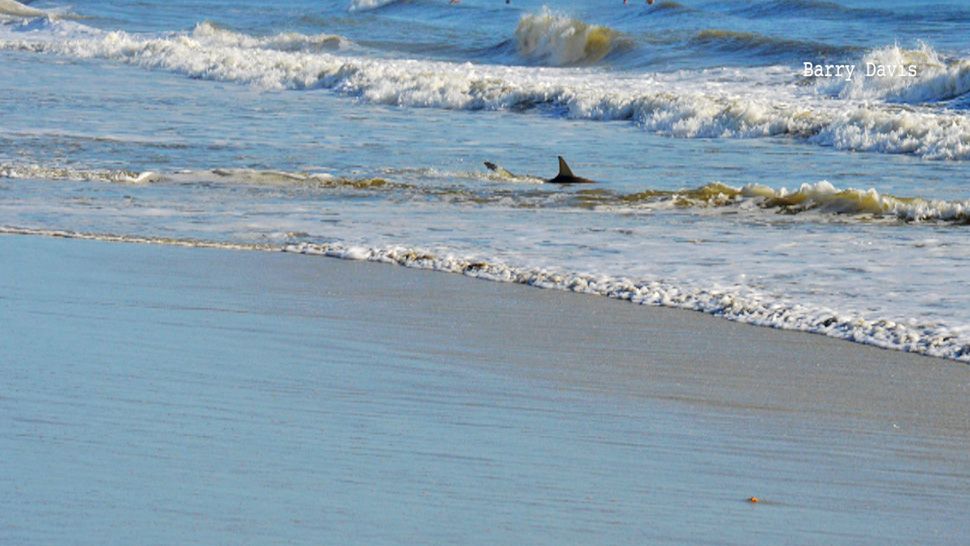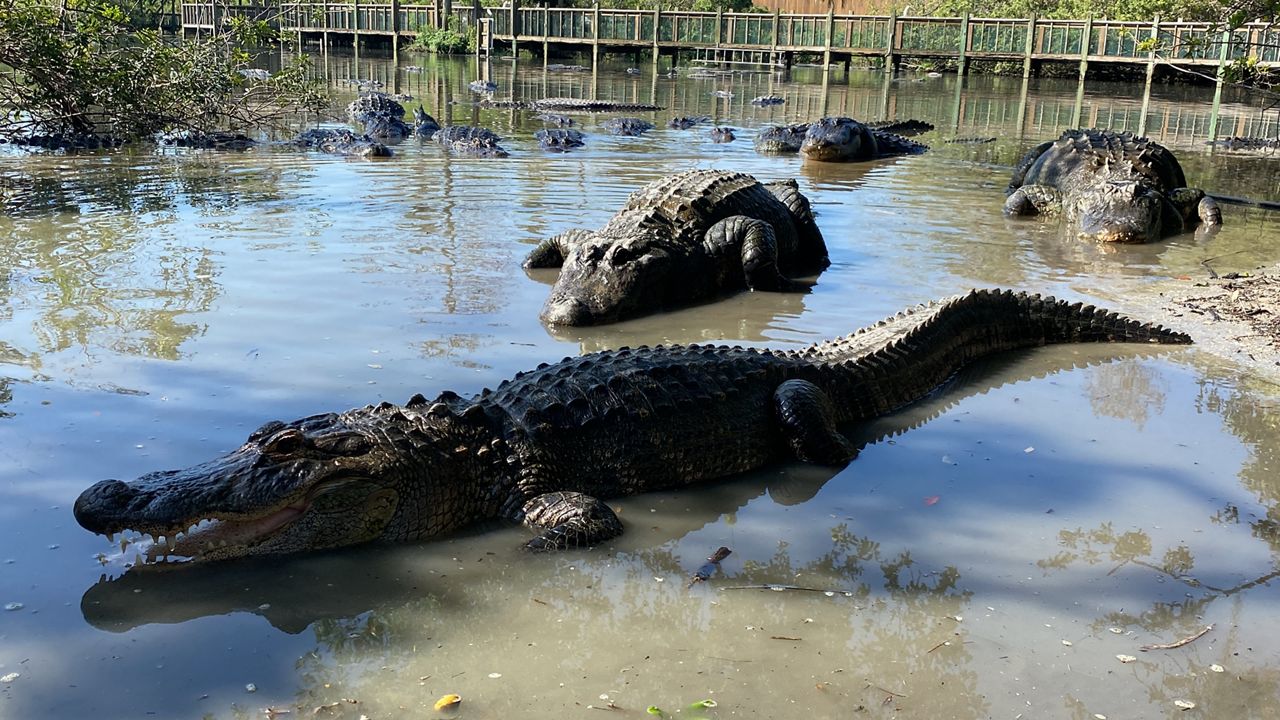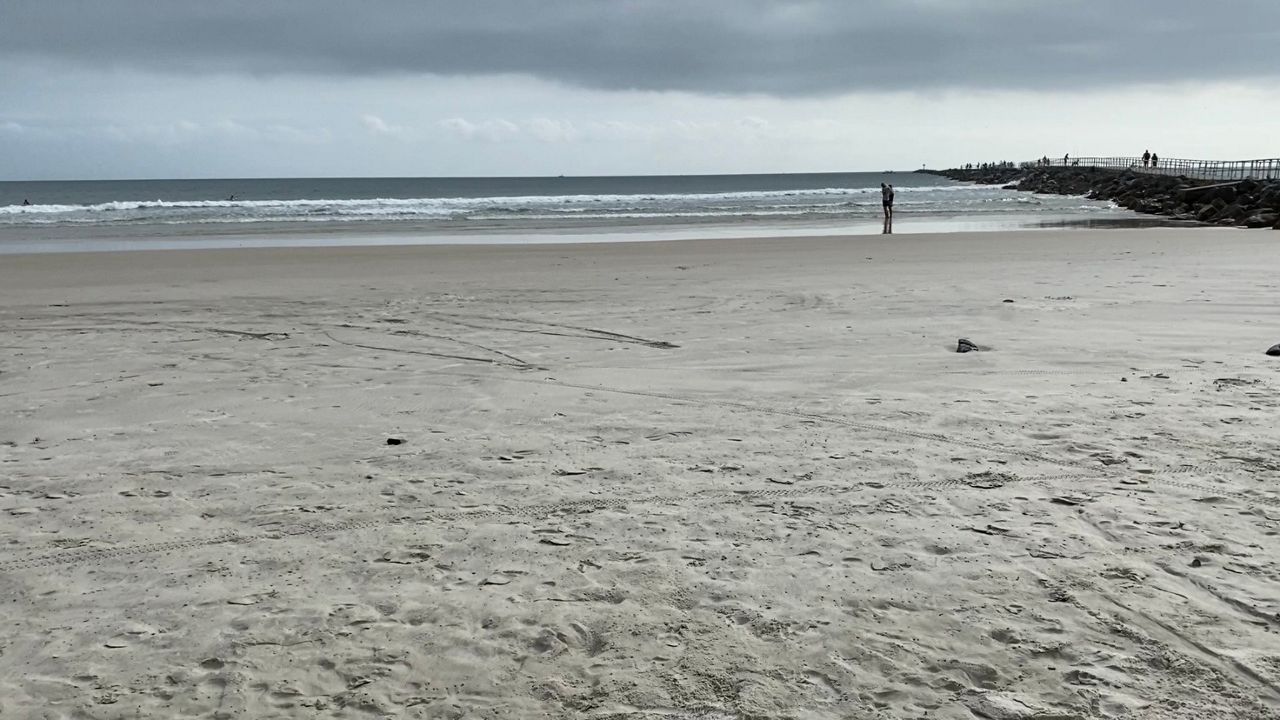NEW SMYRNA BEACH, Fla. — There were three shark bites reported at New Smyrna Beach over the past two weekends, which brings the total number of shark bites in Volusia County this year to nine, according to officials.
- There were 3 shark bites at New Smyrna Beach over past 2 weeks
- Officials: If you see bait fish jumping, get out of the water
- RELATED stories:
Three beachgoers were bitten in the past two weeks: two surfers and one visitor from out of state. The latest shark bite happened Saturday, when a 20-year-old New Smyrna Beach woman was bitten by a shark on her hand and wrist.
The surfer was taken to Halifax hospital for the several lacerations she sustained.
On the same day, a second person, also a surfer, went to Beach Safety officials with a shark bite on his foot. The 21-year-old Crystal Beach man was treated at the scene.
On Saturday, July 27, an Arizona man visiting New Smyrna Beach was bitten on the right thigh while he was boogie-boarding. The 49-year-old man was treated at the scene but ended up driving himself to Bert Fish Medical Center for additional treatment.
New Smyrna Beach is considered the shark attack capital of the world, according to Volusia County Beach Safety Ocean Rescue. According to University of Florida, since 1882 until present, Volusia County has the highest number of unprovoked shark bites with 303, followed by Brevard County with 147.
Volusia County Beach Safety Ocean Rescue Capt. Tamra Malphurs says beachgoers can reduce their risk of getting bitten by staying out of the way.
"If you're in the water, and you see a lot of bait fish jumping, I would get out of the water until they pass through. Also, if you see birds diving for bait fish, that's another indication a lot of fish out there and there's bigger fish chasing the smaller fish," Malphurs said.
So far, there has never been a fatality in the county. Malphurs says sharks are not actively looking for people, but they are looking for a fish snack.
"When the water is really murky, it's kind of a mistaken identity. It's usually a bite and release," she says.
Malphurs says the most dangerous aspect of the water are not the sharks, but rip currents.
In fact, Beach Safety conduct more than 2,000 rip current rescues each year.








